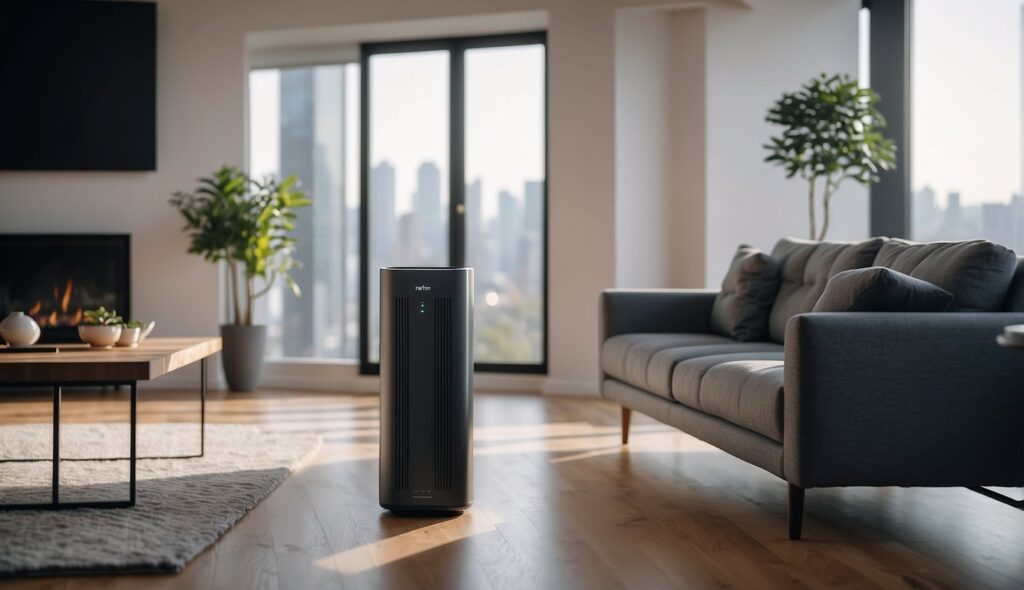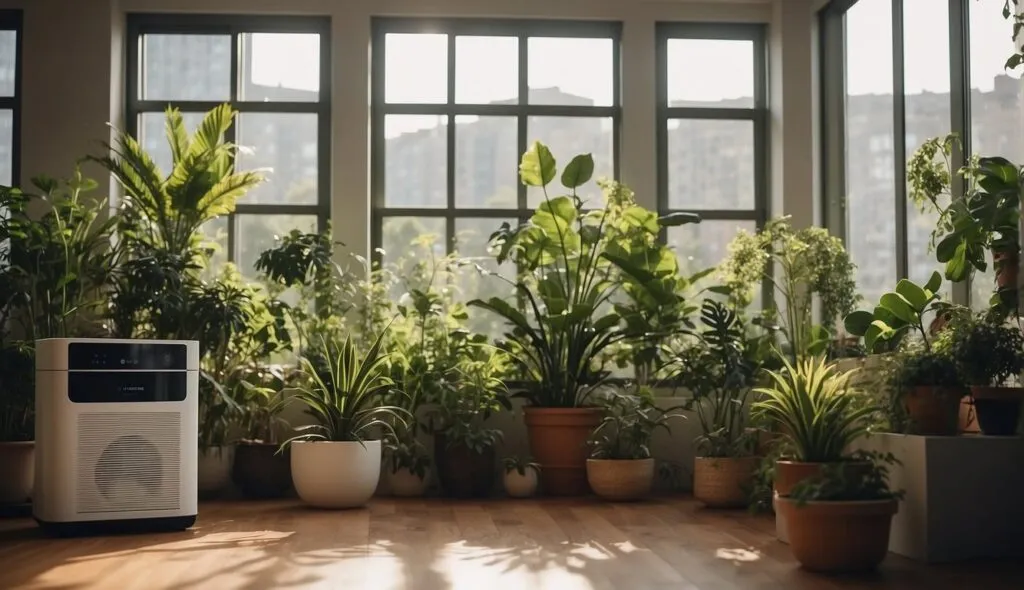Indoor air quality is a critical factor in maintaining a healthy living environment. With the average person spending approximately 90% of their time indoors, it’s crucial to ensure that the air in our apartments is clean and free of pollutants. Poor indoor air quality can lead to a range of health issues, including allergies, respiratory problems, and even cancer.
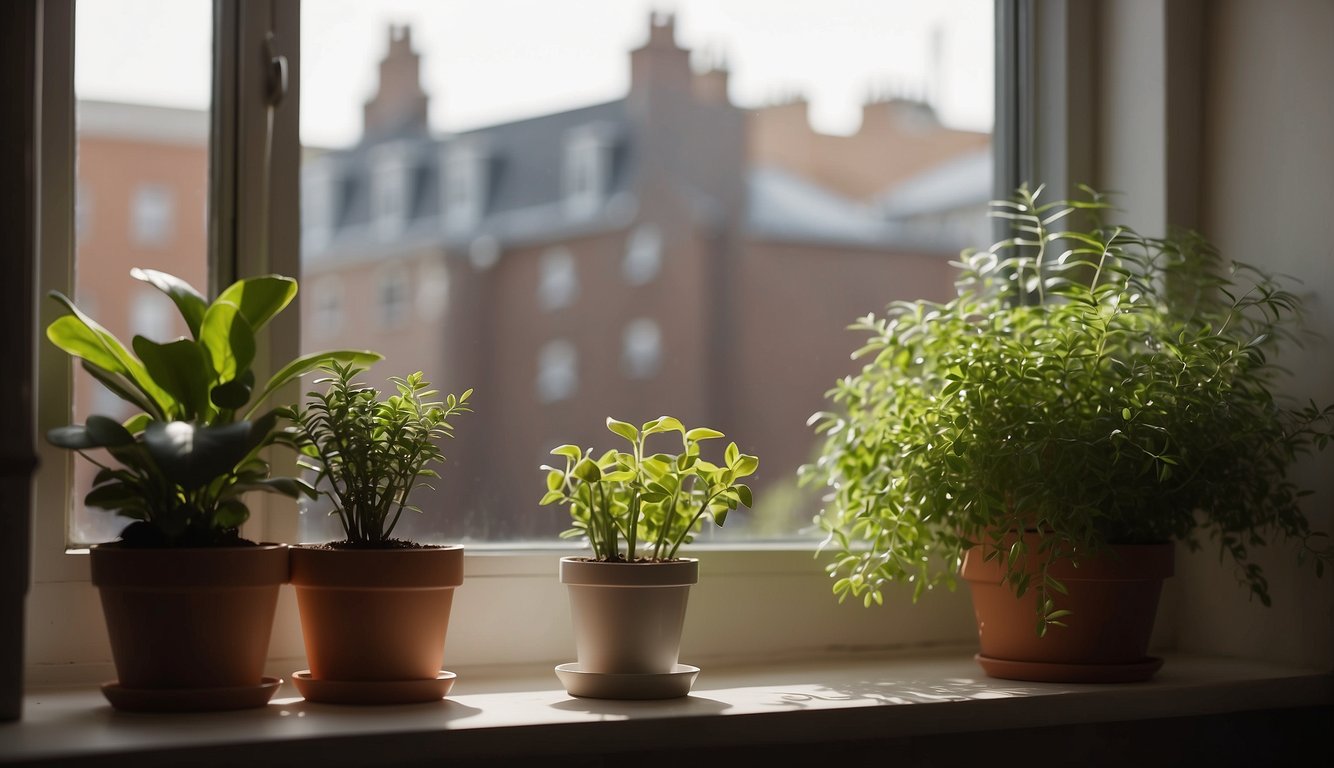
Understanding indoor air quality and how it affects our health is the first step in improving it. There are several factors that can contribute to poor indoor air quality, including inadequate ventilation, air quality problems, and the presence of pollutants such as mold, radon, and volatile organic compounds (VOCs). Identifying these factors and implementing strategies to reduce their impact can significantly enhance the air quality in our apartments.
Improving indoor air quality can be achieved through a range of strategies, including regular maintenance, choosing the right equipment, and implementing best practices for ventilation and air filtration. In this article, we’ll explore these strategies in more detail, providing you with the knowledge and tools you need to enhance the air quality in your apartment.
Table of Contents
Key Takeaways
- Understanding indoor air quality is crucial in maintaining a healthy living environment.
- Poor indoor air quality can lead to a range of health issues.
- Improving indoor air quality can be achieved through regular maintenance, choosing the right equipment, and implementing best practices for ventilation and air filtration.
Understanding Indoor Air Quality
As we spend a significant amount of time indoors, it is important to ensure that the air we breathe is of good quality. Indoor air quality (IAQ) refers to the quality of the air inside a building and how it affects the health and well-being of its occupants. Poor IAQ can lead to a range of health problems such as headaches, fatigue, respiratory problems, and even cancer.
Indoor air pollutants can come from a variety of sources such as cleaning products, furniture, and building materials. Pollutants can be chemical or biological. Chemical pollutants include volatile organic compounds (VOCs) from paints and solvents, while biological pollutants include mold, dust mites, and pet dander. Allergens can also be a source of indoor air pollution and can cause respiratory problems in sensitive individuals.
Mold is a common indoor air pollutant that can cause health problems. It grows in damp areas and can release spores into the air, which can trigger allergies and asthma. Radon is another indoor air pollutant that can be harmful to our health. It is a naturally occurring gas that can seep into buildings through cracks in the foundation. Long-term exposure to radon can cause lung cancer.
Ventilation is an important factor in maintaining good IAQ. Proper ventilation can help remove pollutants and bring in fresh air from outside. The Environmental Protection Agency (EPA) recommends increasing ventilation by opening windows and doors or using an air exchange system. An air quality monitor or indoor air quality monitor can help identify sources of indoor air pollution and determine if ventilation is adequate.
In conclusion, understanding indoor air quality is crucial for our health and well-being. By identifying and addressing sources of indoor air pollution, we can improve the quality of the air we breathe. Proper ventilation and the use of air quality monitors can help ensure that the air inside our homes and buildings is of good quality.
Health Impacts and Risks
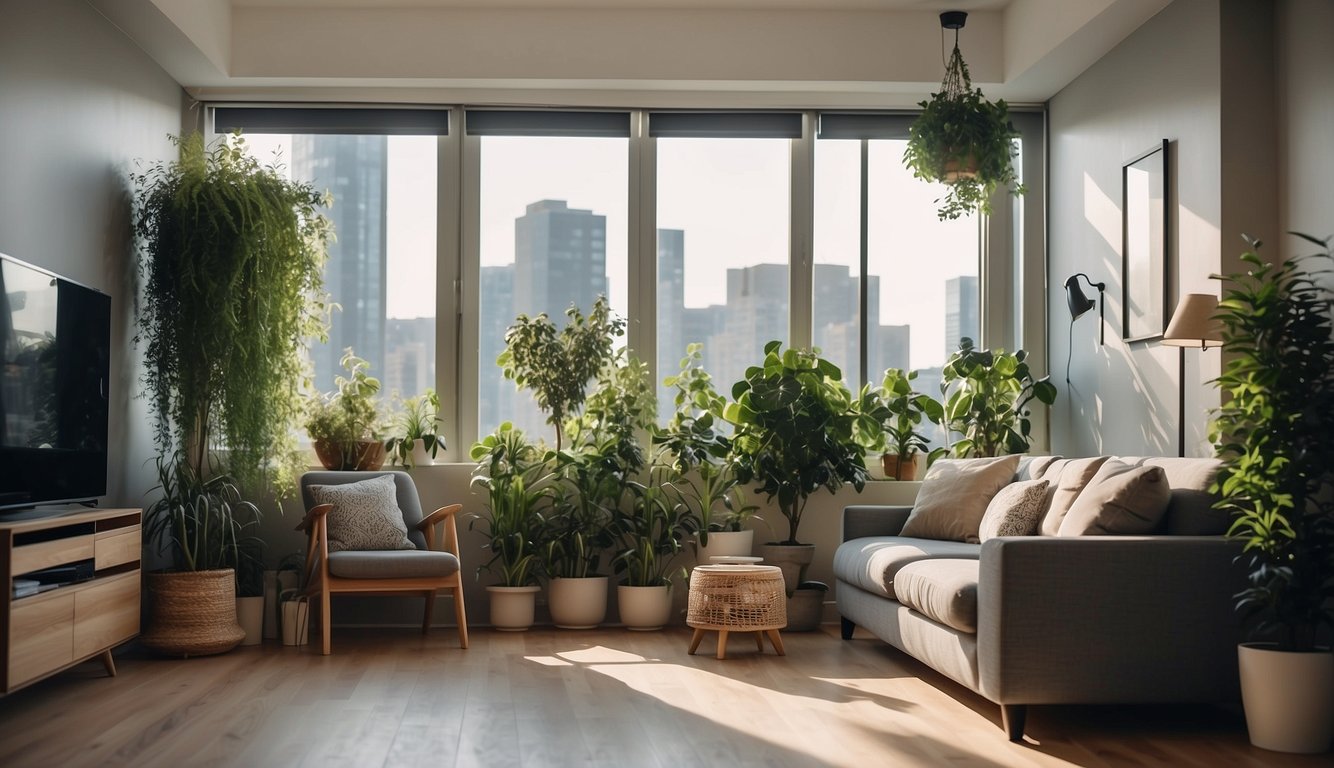
We spend most of our time indoors, and the air quality of our apartment can significantly impact our health. Poor indoor air quality can lead to various health issues, including asthma, allergies, respiratory infections, and other airborne diseases.
Asthma is a chronic respiratory disease that affects millions of people worldwide. According to the American Lung Association, indoor air pollution is one of the leading triggers of asthma attacks. Common indoor air pollutants that can trigger asthma include dust mites, pet dander, mold, and volatile organic compounds (VOCs) from cleaning products and air fresheners.
Allergies are another common health issue caused by poor indoor air quality. According to the American College of Allergy, Asthma & Immunology, indoor allergens such as dust mites, mold, and pet dander can cause allergic reactions, including sneezing, runny nose, and itchy eyes.
Poor indoor air quality can also increase the risk of respiratory infections and other airborne diseases. The COVID-19 pandemic has highlighted the importance of indoor air quality in preventing the spread of respiratory infections. According to the Centers for Disease Control and Prevention, improving ventilation and air filtration can help reduce the spread of COVID-19 in indoor spaces.
In addition to the above health risks, poor indoor air quality can also cause headaches, fatigue, and other health issues. Therefore, it is essential to take steps to improve the indoor air quality of our apartments, such as using air purifiers, maintaining proper ventilation, and avoiding the use of harsh chemicals and air fresheners.
Improvement Strategies
Improving indoor air quality is essential for maintaining a healthy living environment. In apartments, where ventilation may be limited, it is especially important to take steps to enhance air quality. There are several strategies we can employ to improve air quality in our apartments.
Enhancing Ventilation
One of the most effective ways to improve air quality is to increase ventilation. This can be done by opening windows or doors, running exhaust fans, or installing a ventilation system. Proper ventilation helps to remove pollutants and improve air circulation. It is especially important to ventilate when performing activities that generate pollutants, such as cooking, cleaning, or painting.
Air Cleaning Techniques
Air cleaning devices, such as air purifiers, air filters, or air cleaners, can be used to remove pollutants from the air. HEPA filters are especially effective at removing small particles, such as allergens and dust. When selecting an air cleaning device, it is important to consider the size of the room and the type of pollutants present. It is also important to regularly maintain and replace filters to ensure effectiveness.
In addition to air cleaning devices, there are other strategies we can employ to remove pollutants from the air. For example, we can use natural air cleaners, such as plants, to remove pollutants and improve air quality. We can also use source control, such as eliminating individual sources of pollution or reducing their emissions, to improve air quality.
In conclusion, enhancing ventilation and using air cleaning techniques are effective strategies for improving air quality in apartments. By taking these steps, we can create a healthy living environment and reduce the risk of health problems associated with poor air quality.
Maintenance and Best Practices
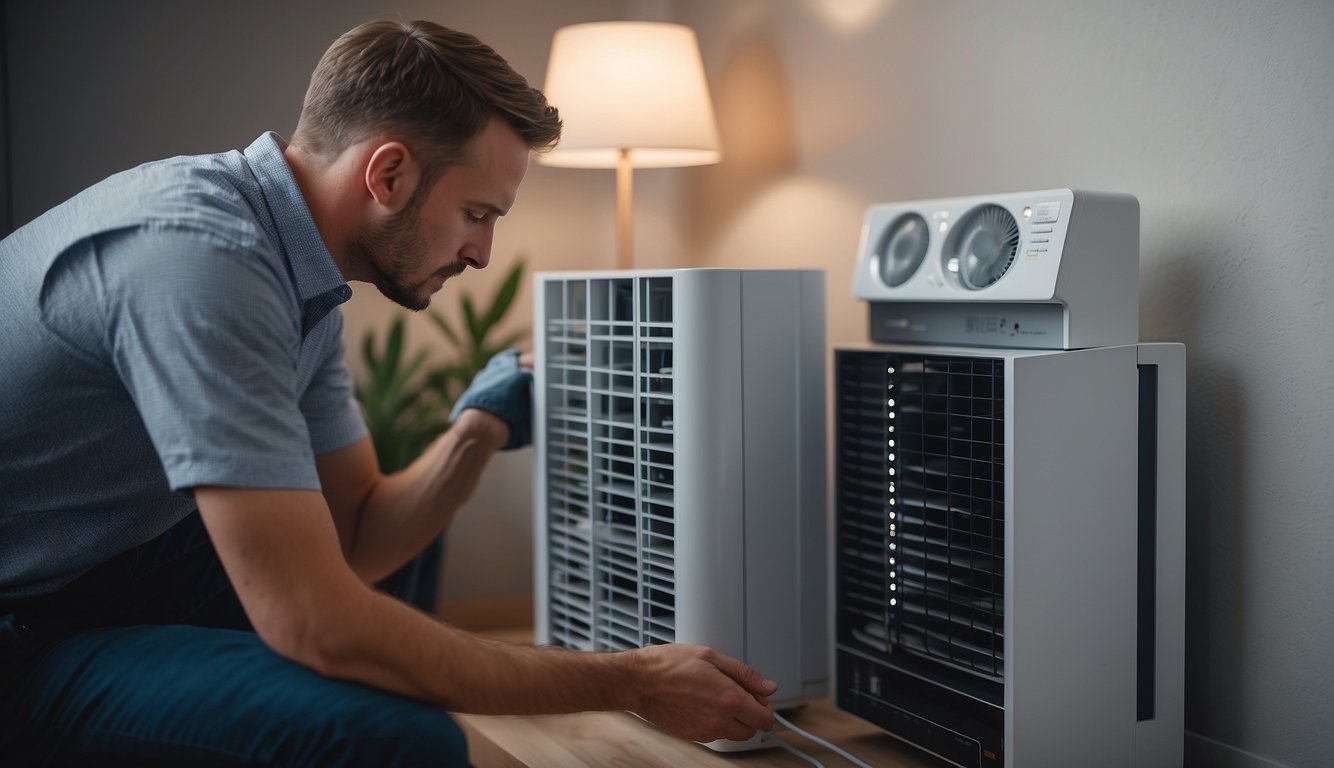
Maintaining good air quality in apartments is crucial for the health and well-being of the occupants. We can take several measures to enhance the air quality of our apartments. Here are some maintenance and best practices that we can follow to ensure good air quality:
Regular Cleaning
Regular cleaning is one of the simplest and most effective ways to maintain good indoor air quality. We must clean our apartments regularly to remove dust, dirt, and other particulate matter that can accumulate over time. This includes sweeping and vacuuming floors, wiping down surfaces, and cleaning carpets, curtains, and other furnishings.
Proper Ventilation
Proper ventilation is essential for maintaining good air quality in apartments. We must ensure that our apartments have adequate ventilation to allow fresh air to circulate and stale air to escape. This can be achieved by opening windows and doors, using exhaust fans in bathrooms and kitchens, and maintaining proper air conditioning and heating systems.
Maintenance of HVAC Systems
The HVAC system plays a crucial role in maintaining good air quality in apartments. We must ensure that our HVAC systems are properly maintained and serviced to prevent the buildup of dust, mold, and other contaminants. This includes changing air filters regularly, cleaning ducts and vents, and scheduling regular maintenance activities.
Use of Household Products
Many household products, such as cleaning agents, paints, and solvents, can emit harmful chemicals that can compromise indoor air quality. We must be mindful of the products we use and choose those that are low in volatile organic compounds (VOCs) and other harmful chemicals.
Furnishings and Interior Building Materials
Furnishings and interior building materials can also contribute to poor indoor air quality. We must choose furnishings and building materials that are low in VOCs and other harmful chemicals. This includes selecting carpets, curtains, and furniture made from natural materials.
Contaminated Ventilation Systems
Contaminated ventilation systems can also contribute to poor indoor air quality. We must ensure that our ventilation systems are properly maintained and serviced to prevent the buildup of dust, mold, and other contaminants. This includes cleaning ducts and vents regularly and scheduling regular maintenance activities.
By following these maintenance and best practices, we can ensure that our apartments have good indoor air quality, which is essential for our health and well-being.
Choosing the Right Equipment
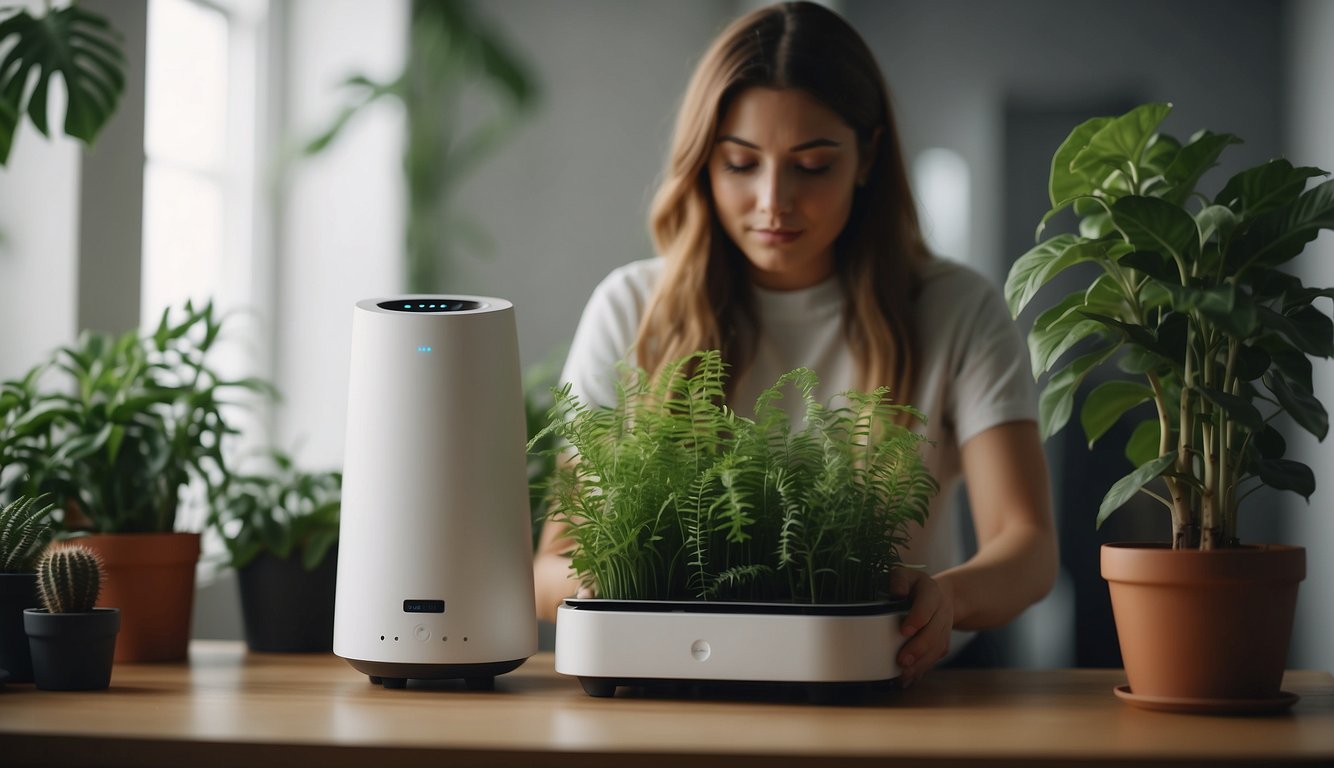
When it comes to enhancing the air quality in your apartment, choosing the right equipment is crucial. Here are some of the most effective tools for improving air quality:
Air Purifiers
Air purifiers are designed to remove pollutants and allergens from the air. They work by drawing in air and passing it through a filter that traps harmful particles. When choosing an air purifier, look for one that is appropriate for the size of your apartment and has a HEPA filter, which is capable of capturing particles as small as 0.3 microns.
Dehumidifiers
Excess humidity can lead to mold growth and other air quality issues. Dehumidifiers help to reduce the moisture in the air, which can improve air quality and prevent mold growth. When choosing a dehumidifier, look for one that is appropriate for the size of your apartment and has a built-in humidistat to monitor and maintain the humidity levels.
Vacuum Cleaners
Vacuum cleaners can help to remove dust, dirt, and other particles from carpets and floors, which can improve air quality. Look for a vacuum cleaner with a HEPA filter, which can capture small particles that other vacuum cleaners may miss.
Air Quality Tests
Air quality tests can help you to identify specific pollutants and allergens in your apartment. This information can help you to choose the right equipment to improve air quality. You can purchase air quality test kits online or hire a professional to conduct a more comprehensive test.
Air Quality Monitors
Air quality monitors can help you to track the air quality in your apartment over time. They measure the levels of pollutants and allergens in the air and provide real-time data on air quality. Look for an air quality monitor that is easy to use and has a clear display.
By choosing the right equipment, you can improve the air quality in your apartment and create a healthier living environment.
Frequently Asked Questions
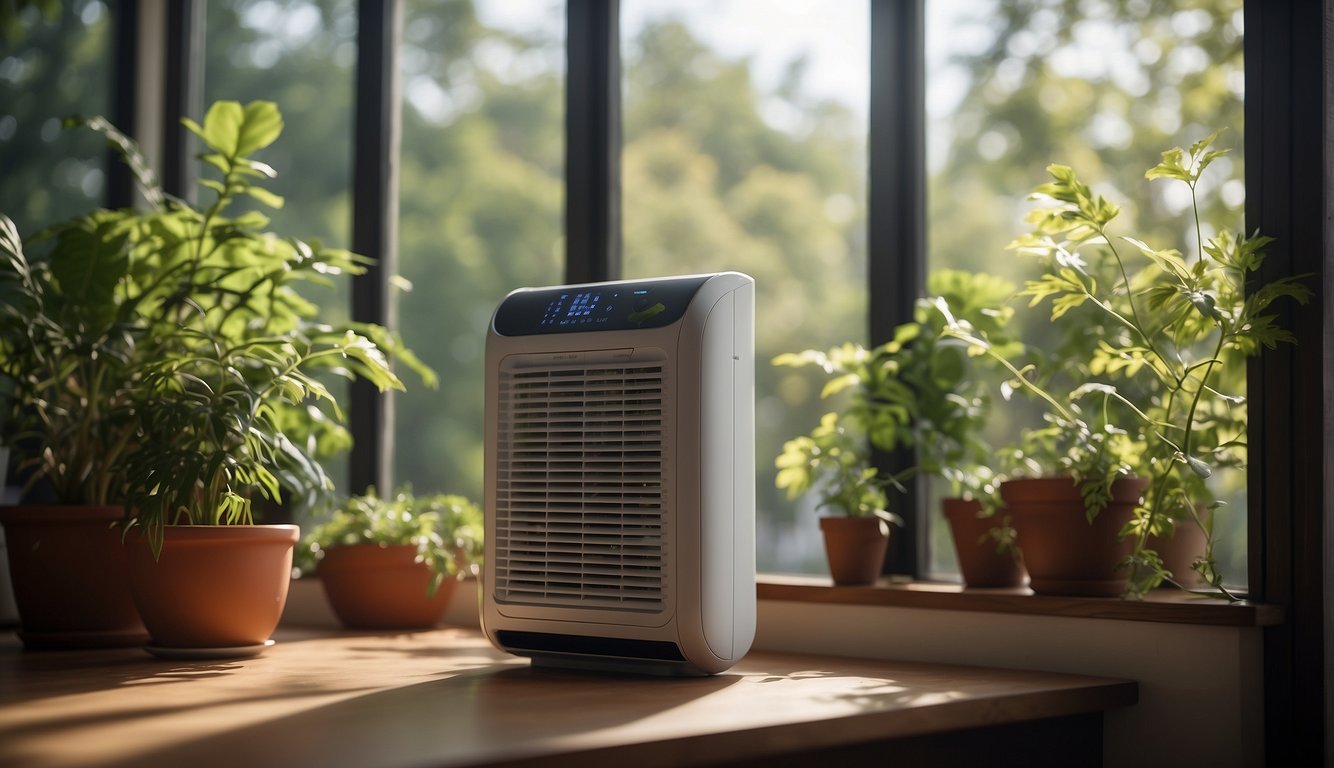
What are effective natural methods to enhance indoor air quality?
There are several natural methods that can be used to enhance indoor air quality. These include opening windows to increase ventilation, using indoor plants to absorb pollutants, and using essential oils to purify the air. Additionally, keeping the apartment clean and dust-free can also help improve indoor air quality.
What are a tenant’s rights regarding air quality in their apartment?
Tenants have the right to live in a safe and healthy environment. This includes having access to clean air. If a tenant believes that the air quality in their apartment is poor, they should notify their landlord or property manager immediately. The landlord is responsible for ensuring that the air quality in the apartment is safe and healthy.
How can one conduct an air quality test in an apartment?
There are several ways to test the air quality in an apartment. One option is to purchase an indoor air quality monitor. These monitors can detect pollutants such as carbon monoxide, mold, and volatile organic compounds (VOCs). Another option is to hire a professional air quality testing company to conduct a more comprehensive test.
What strategies can improve air quality in specific rooms such as bedrooms?
To improve air quality in specific rooms such as bedrooms, it is important to keep the room clean and well-ventilated. This can be done by opening windows, using air purifiers, and using natural cleaning products. Additionally, keeping the room free of clutter and dust can also help improve air quality.
How can urban residents improve the air quality within their living spaces?
Urban residents can improve the air quality within their living spaces by taking several steps. These include using air purifiers, keeping windows closed during times of high pollution, using natural cleaning products, and using indoor plants to absorb pollutants. Additionally, avoiding smoking and using public transportation can also help reduce air pollution.
What measures can office workers take to ensure better indoor air quality at work?
Office workers can take several measures to ensure better indoor air quality at work. These include keeping the workspace clean and well-ventilated, avoiding smoking, using natural cleaning products, and using indoor plants to absorb pollutants. Additionally, using an air purifier and taking breaks outside can also help improve indoor air quality.

